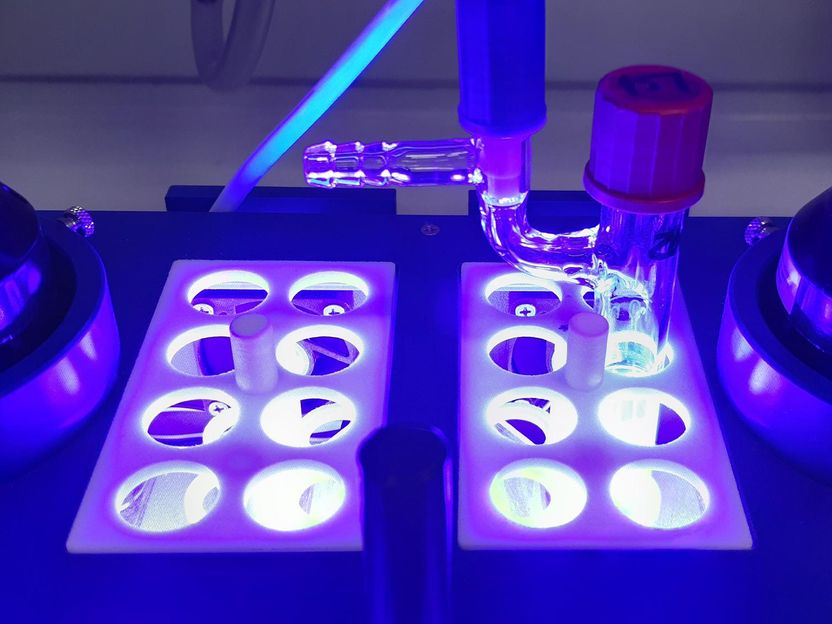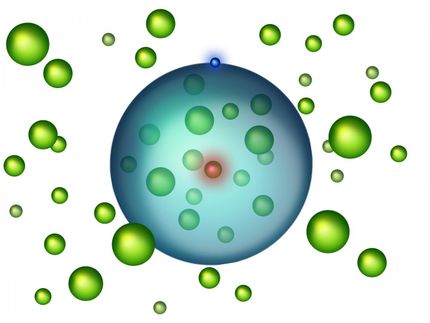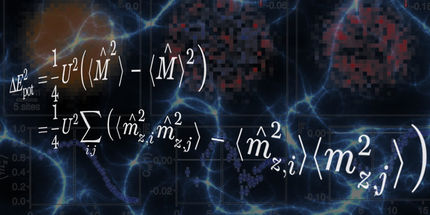World's quietest gas lets physicists hear faint quantum effects
Lowest-entropy gas allows modeling of quantum systems such as high-temperature superconductors
Physicists at the University of California, Berkeley, have cooled a gas to the quietest state ever achieved, hoping to detect faint quantum effects lost in the din of colder but noisier fluids.
While the ultracold gas's temperature - a billionth of a degree above absolute zero - is twice as hot as the record cold, the gas has the lowest entropy ever measured. A record low temperature gas isn't necessarily the least noisy.
"This 'lowest entropy' or 'lowest noise' condition means that the quantum gas can be used to bring forth subtle quantum mechanical effects which are a main target for modern research on materials and on many-body physics," said co-author Dan Stamper-Kurn, a UC Berkeley professor of physics. "When all is quiet and all is still, one might discern the subtle music of many-body quantum mechanics."
The quantum gas, a so-called Bose-Einstein condensate, consisted of about a million rubidium atoms trapped by a beam of light, isolated in a vacuum and cooled to their lowest energy state.
UC Berkeley graduate student Ryan Olf said, what scientists aim for today are low-entropy states they can study to understand more interesting but difficult-to-study materials.
The team's ability to manipulate ultracold, low-entropy gases will allow them to study these quantum systems, including quantum magnets and high-temperature superconductors.
"One of the holy grails of modern physics is to understand these exotic materials well enough to design one that is superconducting without requiring any cooling at all," Olf said. "By studying the properties of low-entropy gases in various configurations, our community of researchers hope to learn what makes these fascinating materials work the way they do."
Olf said that the entropy per particle, rather than the temperature, is the pertinent parameter when comparing systems, and the ultracold gases that had been produced until now struggled to reach the low entropies that would be required to test models of these materials.
"In a very real sense, this constitutes the coldest gas ever produced, at 50 times lower than the temperature at which quantum statistical effects become manifest, the Bose-Einstein condensation temperature," he said.
Reducing the rumble
Stamper-Kurn and his laboratory team chill gases to temperatures so low that quantum effects take over, which leads to strange "superfluid" behavior, such as frictionless flow. Superfluid helium is famous for climbing up and over the lip of a cup.
Normally, a Bose-Einstein condensate is a mixture of a quantum gas and a normal gas. Its temperature is determined by measuring the thermal properties of the normal gas. A low-entropy gas is almost all quantum gas, however, so the team had to find a different way to measure the temperature. They did so by tilting the magnetization of the atomic spins and measuring thermal properties of the tilted magnetization, essentially creating a magnon thermometer.
The tilted spins also helped them cool the gas to its low-entropy state by enhancing the evaporative cooling that researchers have long relied on to produce ultracold gases. In addition to removing hot atoms to reduce the average temperature of the gas, they used evaporative cooling of the thermalized spins to reduce the temperature to 1 nanoKelvin, corresponding to an entropy 100 times lower than previous experiments, Olf said.
Original publication
Other news from the department science

Get the chemical industry in your inbox
By submitting this form you agree that LUMITOS AG will send you the newsletter(s) selected above by email. Your data will not be passed on to third parties. Your data will be stored and processed in accordance with our data protection regulations. LUMITOS may contact you by email for the purpose of advertising or market and opinion surveys. You can revoke your consent at any time without giving reasons to LUMITOS AG, Ernst-Augustin-Str. 2, 12489 Berlin, Germany or by e-mail at revoke@lumitos.com with effect for the future. In addition, each email contains a link to unsubscribe from the corresponding newsletter.
Most read news
More news from our other portals
Last viewed contents
Removing nitrogen compounds from diesel by adsorption onto copper-containing zeolites



























































